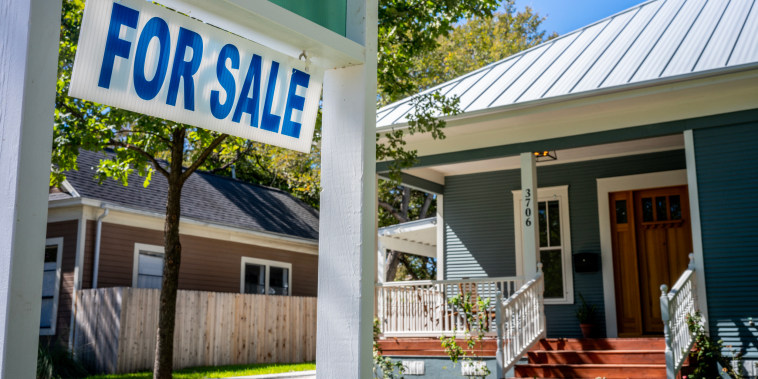The recent surge in mortgage rates has stirred concerns among potential home buyers as borrowing costs have reached the highest level of the year. While market dynamics and economic conditions play a significant role in determining mortgage rates, it is imperative for consumers to understand the factors influencing this increase and how it could impact their home buying decisions.
1. **Market Trends and Federal Reserve Policy:**
Mortgage rates are closely tied to the overall interest rate environment, which is influenced by the Federal Reserve’s monetary policy decisions. The Fed’s actions, particularly concerning changes to the federal funds rate, directly impact long-term interest rates, including those for mortgages. As the economy continues to recover from the impact of the pandemic, the Fed has signaled a more hawkish stance on inflation and is expected to gradually tighten monetary policy, putting upward pressure on mortgage rates.
2. **Inflation and Economic Outlook:**
Inflationary pressures have been on the rise in recent months, fueled by supply chain disruptions, labor shortages, and increased consumer demand. Higher inflation erodes the purchasing power of money, leading investors to demand higher yields on fixed-income investments like mortgage-backed securities. As a result, mortgage rates tend to climb in response to inflationary trends and economic uncertainty, as lenders seek to protect themselves from potential losses.
3. **Housing Market Dynamics:**
The housing market is inherently cyclical, with periods of high demand and price appreciation followed by corrections and slowdowns. The recent surge in mortgage rates could dampen home buying activity, particularly among first-time buyers and those on tight budgets. Higher borrowing costs may price some prospective buyers out of the market or force them to settle for less expensive homes, impacting overall housing market dynamics and inventory levels.
4. **Impact on Refinancing Activity:**
Rising mortgage rates also have implications for existing homeowners looking to refinance their loans to take advantage of lower rates or tap into their home equity. As rates climb, the incentive to refinance diminishes, potentially slowing down the refinancing market and limiting opportunities for homeowners to reduce their monthly payments or access cash for renovations or other expenses.
5. **Mitigating Strategies for Consumers:**
While rising mortgage rates present challenges for home buyers and refinancing homeowners, there are strategies to mitigate the impact of higher borrowing costs. Consumers can shop around for competitive rates, improve their credit scores to qualify for lower rates, consider adjustable-rate mortgages as a short-term solution, or explore government-backed loan programs that offer more affordable financing options.
In conclusion, the recent uptick in mortgage rates underscores the dynamic nature of the housing market and the importance of staying informed about economic trends and policy developments that affect borrowing costs. As consumers navigate the current environment of rising rates, careful consideration, financial planning, and strategic decision-making will be crucial in achieving their homeownership goals while managing the impact of higher mortgage rates.
